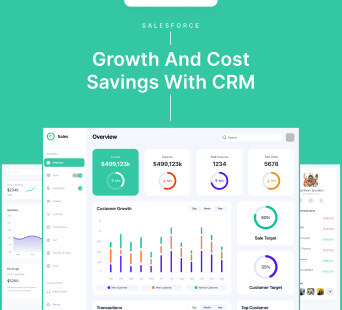JavaScript is a programming language for developing dynamic web applications and runs from the side of the client. The program does not need any compilation since the browsers are in charge of processing the code and carrying out the assigned tasks.
JavaScript is considered by many programmers to be a standard for designing interactive websites, as it integrates seamlessly with HTML, CSS, CMS, etc. It is essential to mention that it is an easy language to learn and has many documentation and examples on the web.
The JavaScript language is mainly used to improve the ergonomics of a website and an application user interface. It is also used to integrate aesthetic effects. Its main interest lies in its mode of operation: the JavaScript language offers the possibility of executing a code without having to reload a web page. In this, it plays a role in improving the speed of loading a page, an increasingly important criterion of referencing.
According to software firms' studies, this language is used in more than 90% of web pages in the world. Also, 44% of companies are looking for programmers to create their applications due to its compatibility with other programs. In fact, Facebook, Twitter, Instagram, and other social networks use JavaScript codes to update their status.
More About JavaScript
JavaScript is a powerful programming language that allows you to add dynamism to your website. You can add multimedia elements, forms, surveys, games, image galleries, and interactive buttons to capture users' attention.
JavaScript was created by Brendan Eich and appeared in mid-1995 under the name LiveScript. It was also born as a functional language to add some interactive features to web pages. It increased, and today it is the base programming language used in almost every website in the world.
It is a multi-paradigm language; that is, it supports functional, object-oriented, and imperative programming. On the other hand, you can create JavaScript files with the .js extension and write scripts inside HTML, CSS, XML tags, etc.
JavaScript is mainly used on the client-side; that is, it runs on the computer, not the server. Therefore, the page responds faster. Consequently, the different browsers are in charge of interpreting the code and showing the functionalities you developed in your web portal. However, JavaScript has advanced to the extent that it can now run on the server-side using the NodeJs framework.
It Is Common To See The Following Functionalities Developed In JavaScript On The Internet:
- Mail Services
- IRC and Chat services and clients
- Clock
- Visit counters
- Dates
- Calculators
- User validation
- Browser and language detectors
- Blogs
- Forums
- E-commerce website
- Web apps and many more
Advantages Of Using JavaScript In Web Programming
Today, the JavaScript programming language is used extensively on mainstream websites. Web browsers have become much more efficient at translating it. It was AJAX, a tool that allows JavaScript to update a page without completely reloading it, that helped popularize JavaScript. Indeed, an efficient use of AJAX makes it possible to gain in speed and fluidity. In addition, JavaScript code written in a framework will be easier to maintain or resume than a specific development.
They save time on the development of a site and therefore save cost. A JavaScript framework is a collection of applications and features, like a toolkit containing common and repetitive tasks. Their use saves considerable time.
JavaScript has no impact on graphic design. It makes it possible to take the user's interactions with the site or the application (transitions between pages, areas where the page is partially reloaded, etc.) into account.
It Is Easy To Learn
JavaScript is a straightforward language to master, as its learning curve is low. Also, if you are a user with programming knowledge, you will realize that the syntax is very similar to other development programs such as C and Java. It has also consolidated communities, where you can get information such as examples, tutorials, even codes ready to implement.
It Is Very Versatile
JavaScript is a standard language in the web industry. Therefore, it can be integrated with other technologies. For this reason, the code can be inserted on any page regardless of the file extension, that is, add scripts in JSP, PHP, Perl files, to name a few.
Server Load
As the program runs on the client-side, the load on the web page server is reduced. Consequently, your site will respond faster, and users will perceive it.
Create Dynamic Interfaces
With JavaScript, you can develop elements such as drop-down menus, buttons, registration forms, surveys, add effects to text, change the font color, etc. Hyperlink InfoSystem is a top JavaScript development agency specializing in web apps development using the best JavaScript frameworks that suit the clients' projects.
It Is Multiplatform
JavaScript is a cross-platform web programming language. That is, it runs on different operating systems, such as Mac, Linux, and Windows. Therefore, you can develop any application, and it will work without any problem. In this sense, the language runs in any browser, with the plus that it is compatible with the most modern devices of today, including PlayStations.
It Is Compatible With The Different Cms
If you have a web portal developed in Joomla, WordPress, or Drupal, you can easily add JavaScript scripts to offer more interactivity to your website.
It Is Updated Frequently
Due to the flexibility of the language, companies like Google, Microsoft have developed frameworks adding the controller view model; this makes it easy to build web applications in a short time. This evolution allows running programs both on the server-side and on the computer. Therefore, you can program freely.
Popular JavaScript Frameworks
- Angular
- React
- JQuerry
- NodeJs
- Socket
- Vue.js
- Polymer
- Meteor
- D3
- Ember
- Aurelia
- Knockout
- Keystone
- Backbone











































